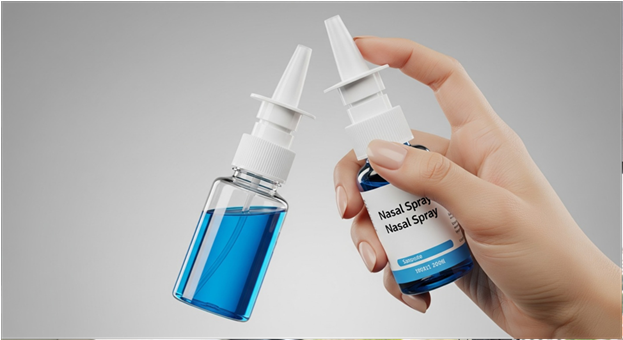Nasal Spray vs Irrigator: Which One Clears Better?
When your nose is blocked, and every breath feels forced, finding relief matters fast. That’s when nasal care products step in. You’ve probably seen a nasal spray on the shelf or heard of nasal rinses. But which one actually works better? If you’re not sure what to reach for, you’re not alone, and this guide is here to help you decide.
Feel That Sting? What Nasal Sprays Really Do Inside Your Nose
A nasal spray delivers a fine mist right into your nose. Saline sprays help moisturise and loosen up dry mucus. They’re ideal for dryness, minor irritation, or just clearing out dust and allergens.
Some sprays are medicated. They target swelling and allergy symptoms, but they come with limits. Use them too long, and your nose might end up more congested than before. Saline sprays, though, are safe for regular use and carry no rebound risks.
Sprays are easy to use, quick to carry, and ideal when you’re rushing out the door or trying to stay comfortable between meetings.
Drench the Mucus: The Brutal Cleanse of a Nasal Irrigator
A nasal irrigator, often used with a saline rinse, clears your sinuses in a more intense way. It flushes liquid from one nostril to the other, taking mucus, dust, and irritants with it. If you’re dealing with thick mucus, blocked sinuses, or a heavy head, this approach digs deeper.
Looking for a neti pot alternative? Modern options include squeeze bottles or powered rinsers that feel more natural and require less coordination.
These devices may take some getting used to. You’ll need a clean sink, the right solution, and sterile water. But once you’ve done it a few times, it becomes easier—and for many people, it works better.
Who Wins the Battle of the Blocked Nose?
When you want fast and deep results, irrigation tends to win. It flushes away the buildup that’s blocking your breathing. The nasal spray, while helpful, doesn’t flush through your sinuses. It’s more of a surface-level solution.
Still, sprays aren’t useless. Far from it. They’re great for keeping your nose hydrated during the day and easing mild congestion. In fact, many people use both. Rinse first, spray later.
For anyone dealing with allergy flare-ups or post-infection buildup, using a sinus irrigation system can bring quick relief that lasts longer than sprays alone.
Don’t Risk It: What You Must Know Before Using Either
You don’t need to feel nervous about these tools, but you do need to use them right. Saline sprays are low risk and great for daily use. Medicated ones? Only use them as instructed. Going beyond that can make things worse.
Irrigators need a bit more attention. The water you use matters: stick to distilled, sterile, or boiled. Never tap. Rinse the device thoroughly after every use. It might seem like a lot at first, but once it’s part of your routine, it’s no big deal.
Convenience or Commitment: What’s Your Breathing Worth to You?
Want something easy and effective? Sprays are the way to go. Just grab, spray, and go. But if you’re ready to deal with long-standing congestion, rinsing delivers a deeper clean.
And if allergies make your nose miserable, using a nose cleaner for allergies like an irrigator can clear away pollen and irritants better than sprays alone.
You’ve just got to decide what you’re willing to commit to. Quick relief, deeper cleansing, or both.
Still Can’t Decide? Here’s What Your Symptoms Are Telling You
- If your nose feels a bit dry or blocked, use a nasal spray.
- If you feel full pressure and thick mucus, go with an irrigator.
- Want full control? Do both. Start your day with a rinse, then carry a saline nasal rinse spray to stay clear throughout the day.
Choosing one now doesn’t mean you’re stuck with it forever. Some days need more. Others just need a light touch. Let how you feel lead the way.
The Final Breathe-Easy Verdict
When breathing feels easy, everything else becomes easier too. If you’re dealing with mild symptoms or want something fast and portable, a nasal spray gives you that. If your congestion is heavier or more stubborn, an irrigator might clear the path quicker.
You don’t need to overthink it. Just start with what feels right. You’ll get better at reading your own body and your nose will thank you.


